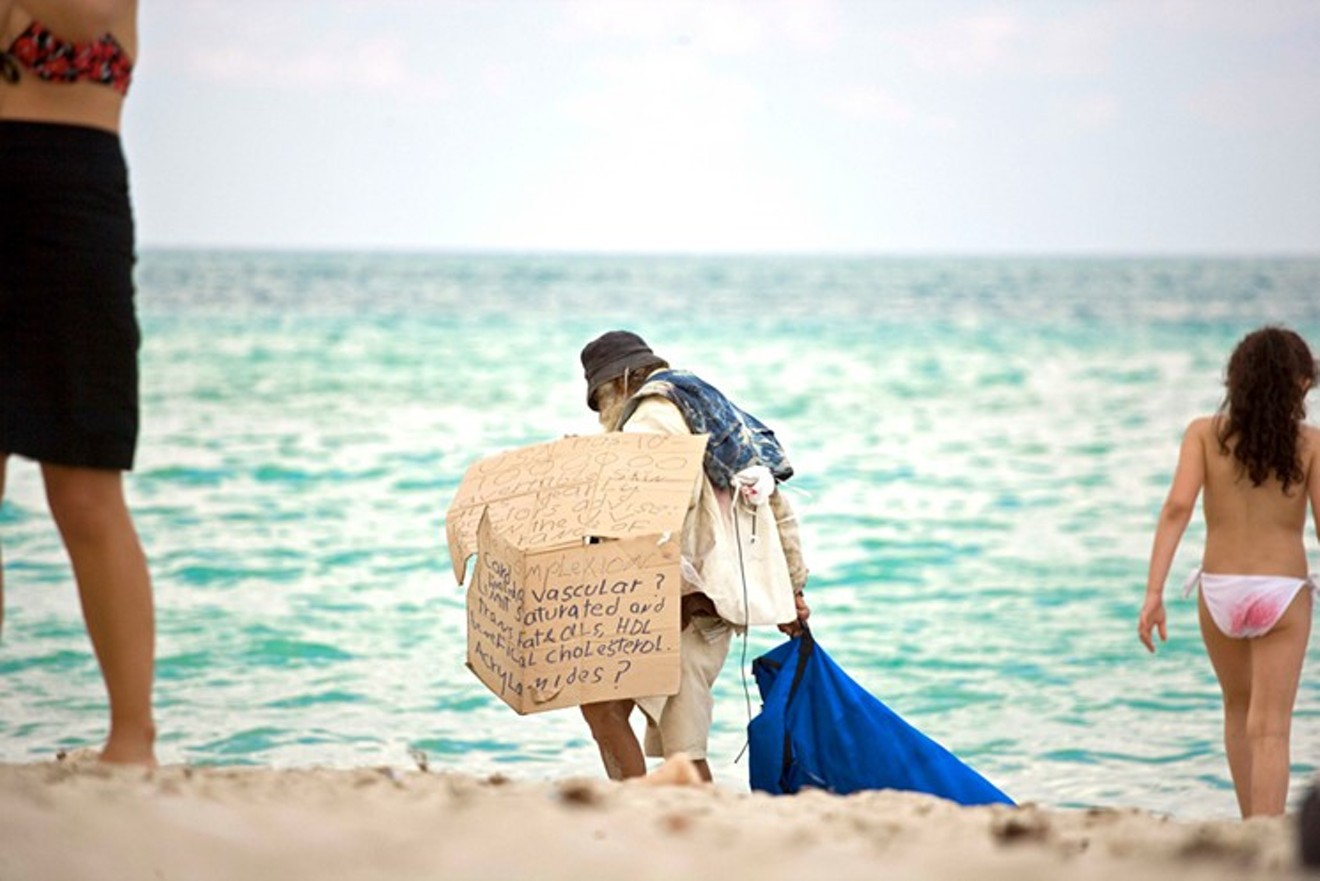Two years ago, Miami Beach real-estate agent and homeless advocate Valerie Navarrete began interviewing local homeless people to get a sense of how they had ended up on the streets. Her videos brought much-needed humanity to former teachers, veterans, and construction workers who had lost their homes after devastating life events such as layoffs, deaths in their families, or health problems.
One common roadblock she heard again and again: mounting court costs. Because even one arrest for a misdemeanor such as trespassing often came with hundreds of dollars of fines, many of the people Navarrete speaks with say they are stuck in Miami Beach until they can find the money to pay their debts.
"They get trapped," says Navarrete, who chairs Miami Beach's committee for the homeless. "It's like a hamster wheel."
This week, the committee passed a motion asking the city to push judges to waive court costs for homeless people who wish to move out of town. Miami Beach currently offers bus vouchers to the homeless if they have a family member or friend who can care for them in another city, but the offer is open only to those who have paid their fines. Often, court debts simply drive more people into panhandling, Navarrete says.
"A lot of people were telling me that because of court costs, they couldn't go back home because they couldn't make enough money," she says.
A 2014 NPR investigation found that court bills are increasingly to blame for trapping people in poverty and incarceration. Most often, those affected come from vulnerable populations — people of color, people with mental illness, or people with a history of substance abuse.
The idea of waiving court costs has already been explored in other cities with large homeless populations. In Phoenix, a "homeless court" program allowed homeless offenders to have their fines waived if they committed to receiving services. Similar efforts exist in Denver, San Diego, and Detroit.
The committee's motion will next go to Miami Beach's city commission for discussion.
"If somebody wants to go to either a friend or family or whoever it is that can support them and help them out of the situation they're in, they should be able to go no matter what they owe the courts," Navarrete says. "Keeping them here is just plain cruel."
[
{
"name": "Air - MediumRectangle - Inline Content - Mobile Display Size",
"component": "19274298",
"insertPoint": "2",
"requiredCountToDisplay": "2"
},{
"name": "Editor Picks",
"component": "17482312",
"insertPoint": "4",
"requiredCountToDisplay": "1"
},{
"name": "Inline Links",
"component": "18711090",
"insertPoint": "8th",
"startingPoint": 8,
"requiredCountToDisplay": "7",
"maxInsertions": 25
},{
"name": "Air - MediumRectangle - Combo - Inline Content",
"component": "17482310",
"insertPoint": "8th",
"startingPoint": 8,
"requiredCountToDisplay": "7",
"maxInsertions": 25
},{
"name": "Inline Links",
"component": "18711090",
"insertPoint": "8th",
"startingPoint": 12,
"requiredCountToDisplay": "11",
"maxInsertions": 25
},{
"name": "Air - Leaderboard Tower - Combo - Inline Content",
"component": "17482313",
"insertPoint": "8th",
"startingPoint": 12,
"requiredCountToDisplay": "11",
"maxInsertions": 25
}
]












